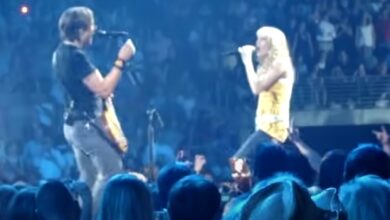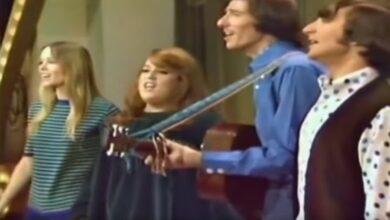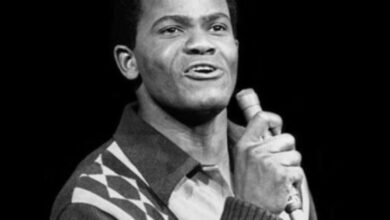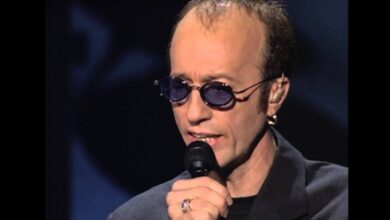The Box Tops’ ‘The Letter’ Soars to No. 1 and Defines 1967’s Upbeat Rock Sound
By the time The Letter hit the airwaves in mid-1967, The Box Tops were virtually unknown outside of their hometown of Memphis, Tennessee. But that quickly changed when their gritty, soulful debut single rocketed to No. 1 on the Billboard Hot 100, where it remained for four consecutive weeks. Clocking in at just under two minutes, The Letter packed a powerful punch, blending raw garage rock energy with deep Southern soul influences. The song’s urgent lyrics, punchy rhythm, and distinctive vocal delivery made it an instant classic, and it remains one of the defining songs of the late 1960s.
The Box Tops were formed from a group of Memphis high school students, with Alex Chilton as their 16-year-old lead singer. Chilton’s husky, world-weary voice gave The Letter a depth far beyond his years, making his gravelly performance one of the most recognizable in rock history. While the band members were young, their sound reflected the deep influence of Memphis soul, thanks to the city’s thriving music scene and the influence of legendary studios like Stax Records.
The song was penned by Wayne Carson, a songwriter known for his later hit Always on My Mind, which would be recorded by Elvis Presley and Willie Nelson. Carson initially envisioned The Letter as a country ballad, but when the song was handed to The Box Tops, it was transformed into an electrifying rock and soul hybrid. Producer Dan Penn, a key figure in Southern soul music, stripped down the arrangement, emphasizing the song’s urgency with sharp percussion, punchy organ fills, and Chilton’s commanding vocal.
Recorded at American Sound Studio in Memphis, The Letter was a product of Penn’s raw, live recording approach. The session musicians infused the track with a sense of spontaneity, and Chilton’s gritty, almost desperate delivery perfectly captured the song’s theme—an impassioned plea from a man longing to reunite with a lost love. The track’s signature airplane sound effect, a last-minute addition in the studio, added an extra sense of movement and urgency, mirroring the lyrics: Gimme a ticket for an aeroplane, ain’t got time to take a fast train…
Upon its release in July 1967, The Letter took off almost immediately. The song’s short length made it ideal for radio play, ensuring it was heard frequently. By September, it had climbed to the top of the Billboard Hot 100, overtaking The Beatles and The Doors. It remained at No. 1 for four weeks, becoming one of the fastest-rising singles of the decade. The track also found international success, breaking into the Top 10 in the UK, Canada, and Australia, further cementing The Box Tops’ status as global stars.
Culturally, The Letter arrived at the perfect moment. The summer of 1967, often referred to as the Summer of Love, was dominated by the psychedelic experimentation of bands like Jefferson Airplane, The Byrds, and The Beatles. However, The Letter stood apart from the dreamy, surrealistic soundscapes of its contemporaries. It was short, direct, and emotionally charged, a reminder of the raw power of soul-infused rock and roll at a time when the genre was evolving in many directions.
For The Box Tops, the success of The Letter was both a blessing and a challenge. The song established them as hitmakers, leading to a string of follow-up singles like Cry Like a Baby and Soul Deep, but it also placed immense pressure on the young band to replicate their debut success. Chilton, in particular, struggled with the demands of fame and the constraints of the band’s direction.
The song’s influence extended far beyond The Box Tops. The Letter has been covered by numerous artists, most notably Joe Cocker, whose 1970 blues-rock reinterpretation turned it into a slow-burning, emotionally intense ballad. Cocker’s version charted internationally, bringing the song to a new audience and proving its adaptability across different genres. Other artists, from Leon Russell to Al Green, have also paid tribute to the track, further solidifying its status as a rock and soul staple.
Despite their initial success, The Box Tops faced internal struggles, and by 1970, the band had dissolved. Alex Chilton, still in his early twenties, eventually moved on to a different musical chapter, forming Big Star, a band that would later be hailed as one of the most influential groups in power pop history. Though his work with Big Star is often credited as his most innovative, Chilton’s raw vocal delivery on The Letter remains one of his most enduring contributions to rock history.
Decades later, The Letter continues to receive significant airplay and recognition. It has been featured in countless films, commercials, and TV series, ensuring that new generations continue to discover it. The song remains one of the shortest No. 1 hits in history, yet its impact has lasted far beyond its two-minute runtime.
Looking back, The Letter represents a unique convergence of soul, rock, and pop at a time when music was shifting dramatically. It captured the urgency of young love and the longing for connection in a way that was both timeless and deeply rooted in the sound of its era. The song’s success was a defining moment not just for The Box Tops, but for the broader landscape of late-‘60s rock and soul music.
Even today, The Letter stands as a testament to the power of great songwriting, impassioned vocals, and tight production. Whether heard on classic rock stations or in live covers by contemporary artists, it remains a vital part of music history, proving that sometimes, two minutes is all you need to create a masterpiece.



